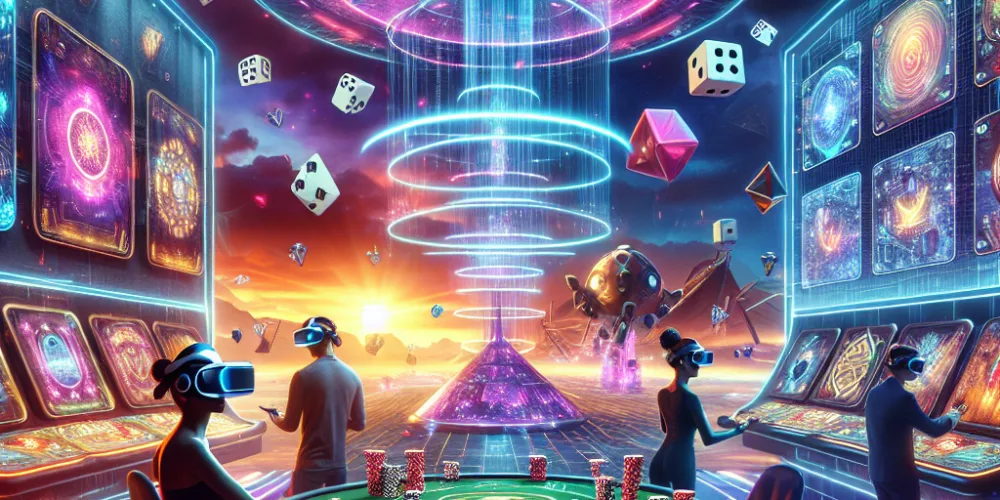In the ever-evolving world of gaming, the line between the virtual and real worlds continues to blur. A prime example of this trend is the emergence of virtual reality (VR) casinos, which have begun to revolutionize the way people engage with gambling and gaming experiences. As technology advances, virtual reality casinos are poised to become a significant facet of both the gaming and gambling industries, offering players immersive experiences that were once the stuff of science fiction.
Virtual reality has already made significant inroads in the video game industry, and its application in the casino sector is a natural extension. VR technology enables players to experience a fully immersive, three-dimensional environment where they can interact with games and other players as if they were physically present in a casino. This technology not only enhances user engagement but also elevates the thrill and excitement of gambling.
One of the most significant advantages of VR casinos is the convenience they offer. Players can access a full-scale casino experience from the comfort of their homes, eliminating the need to travel to physical casino locations. This feature is especially appealing in today’s fast-paced world, where time is a precious commodity. Moreover, VR casinos are accessible 24/7, providing an on-demand entertainment option that fits into any schedule.
The games offered in VR casinos are also a point of attraction. From classic table games like blackjack, roulette, and poker to a wide array of slot machines, VR casinos provide a comprehensive gambling experience. The technology allows for detailed environments and realistic interactions with game elements and other players, enriching the overall gaming experience.
Social interaction is another critical aspect where VR casinos excel. Unlike traditional online casinos that may feel isolated and impersonal, VR platforms offer interactive experiences that can mimic the social atmosphere of a physical casino. Players can communicate and interact with each other in real-time, share tips, celebrate wins, or simply enjoy a conversation, much like they would in a traditional casino setting.
However, the rise of VR casinos is not without challenges. The high cost of VR equipment and the need for robust internet connectivity can be significant barriers for widespread adoption. Additionally, there are regulatory hurdles that need to be addressed as countries and states have different laws regarding online and VR-based gambling.
Looking towards the future, the potential of VR casinos extends beyond mere gambling. These platforms could become hubs for various types of entertainment, including live concerts, sports events, and other virtual gatherings. The integration of other technologies, such as artificial intelligence and blockchain, could further enhance the security and efficiency of VR casinos, making them even more appealing to a broad audience.
The current growth in the VR casino market is supported by the increasing availability of affordable VR equipment and the ongoing improvements in VR technology. Market research reports suggest that the global VR market, including VR casinos, is expected to grow exponentially in the coming years. This growth indicates a significant shift in consumer entertainment preferences and points towards a future where virtual experiences are as sought after as traditional ones.
In conclusion, virtual reality casinos represent a groundbreaking development in the realm of digital entertainment and gambling. Offering an unmatched level of immersion and convenience, VR casinos are set to transform the gaming and gambling landscape. As technology progresses and more people gain access to VR equipment, these virtual platforms are likely to become a mainstay in the gaming industry. Whether you’re a seasoned gambler or a casual gamer, the virtual reality casino experience is something that promises to engage and excite in ways that traditional gaming simply cannot match.

Karine Gomez is an enthusiastic writer and avid gamer with a particular love for PlayStation and casino gaming. Her deep knowledge of gaming trends and casino dynamics makes her articles both informative and engaging. Karine’s passion for PlayStation games and her firsthand experience with casino play shine through in her writing, offering readers authentic insights and valuable tips.

